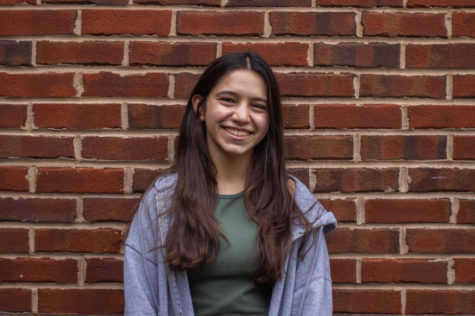Music: Transforming the way you think about therapy
February 9, 2022
Recall a moment singing with friends whether it be at summer camp, in the car, or even at homecoming football games. That feeling of pure happiness and camaraderie might just be the future of treatments for stress, depression, and anxiety. Most people have danced and sang along to their favorite songs with their friends and family. Scientists have begun to view music as a therapy now testing the effectiveness and the best way to administer music therapy. We all listen to music, but now there is mounting evidence that music therapy can reduce stress, nervousness, anxiety, and even depression.
Music therapy is especially important today, as mental health has begun taking center stage but those struggling don’t have many options: go to traditional therapy or get medicated. Music therapy offers a cheaper alternative.
In addition to terminology issues, there is also a lack of RCT or randomized control trials. RCTs are used to get information that’s useful and accurate for everyone. If for example they only test music therapy on young people from the northeast the information may not be useful for older people or people in a different region.
The generalizability of this research is most important right now. It’s important that RCTs are representative of all demographics. This research will make therapy more accessible and effective for everyone.
The way researchers observe and describe patients’ responses to music therapy needs to be standardized so that data from any given study can be used alongside data from another. This would allow more advancements that would remain accurate. Many researchers study if “self-selected” music garners a more intense response than preselected music. Some researchers define “self selected” differently than others, this makes the results of studies harder to interpret and cross-check, slowing progress.
It’s a strange concept to many that we could replace medication with music. Recently studies show that the effect of music therapy is almost as impactful as traditional medication for depression and anxiety, according to Witte, et al. The thing is music therapy has no side effects, music therapy isn’t going to, change your appetite, give you headaches or insomnia, the worst it can do is ruin your Spotify wrapped. This doesn’t mean that music therapy would fully replace therapy or medication. Music therapy can be used alongside other experimental treatments or with traditional methods of treatment.
Accessibility of traditional therapy and medication is a very big issue. Therapy and medication are expensive, and not everyone’s insurance covers them. This takes away the option to get treatment from a very large portion of people.
Listening to music with friends and family is not expensive at all. It can become a group activity, “There is also empirical evidence showing that people synchronize in movement (auditory-motor synchronization) with each other when engaging in music therapy group interventions, which evokes positive feelings of togetherness and bonding, and decreases stress levels” (Witte, et al). Auditory-motor synchronization: a dance party, dancing with friends and family is something accessible to most anyone. Music therapy is an option for everyone, that’s why the mental health community should focus on it and continue researching.
Any one of us can listen to music and bond with friends, most already do it but hopefully knowing how effective it can be in reducing stress, treating, and depression will encourage more to do so. There are lots of options for music therapy, these websites (click here and here) have lists of dozens of different songs that can be helpful. Anyone can listen and hopefully feel a little better.




